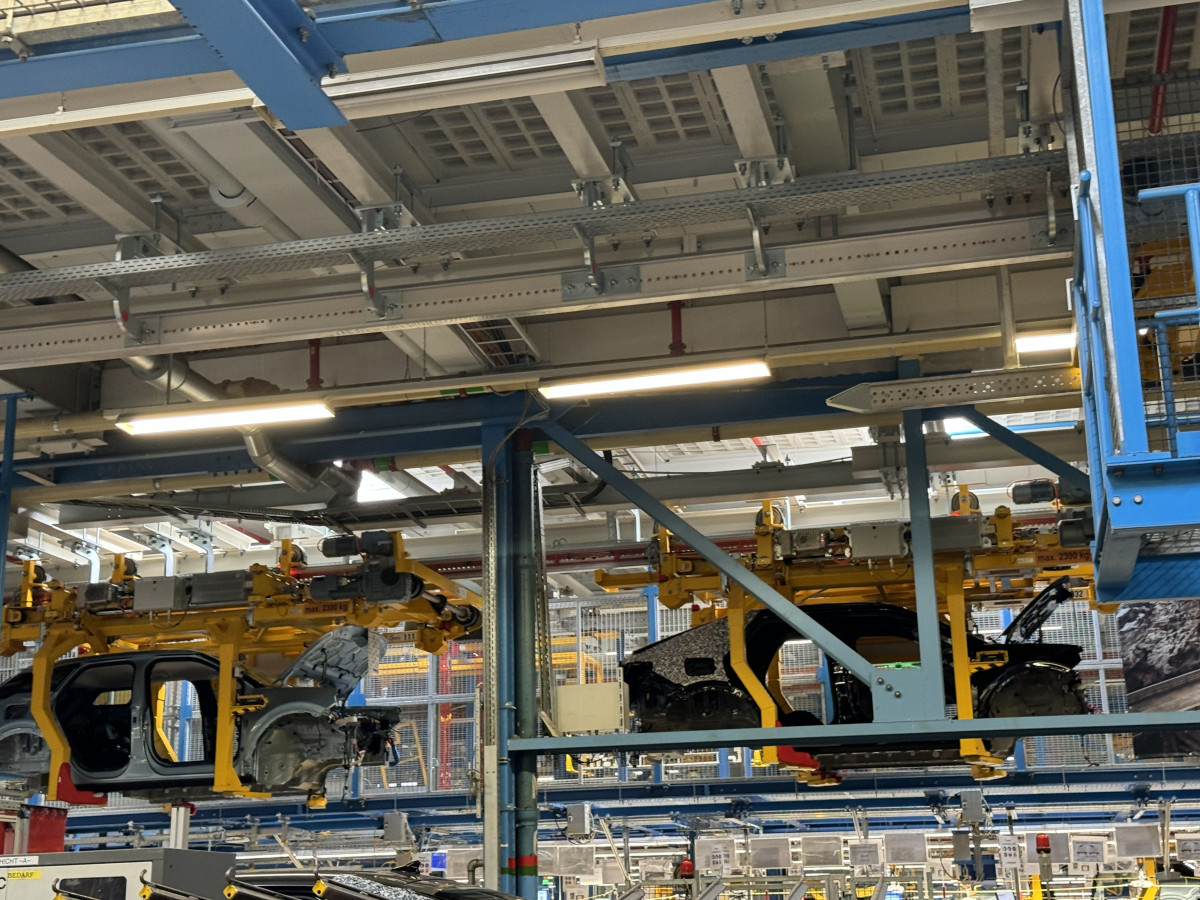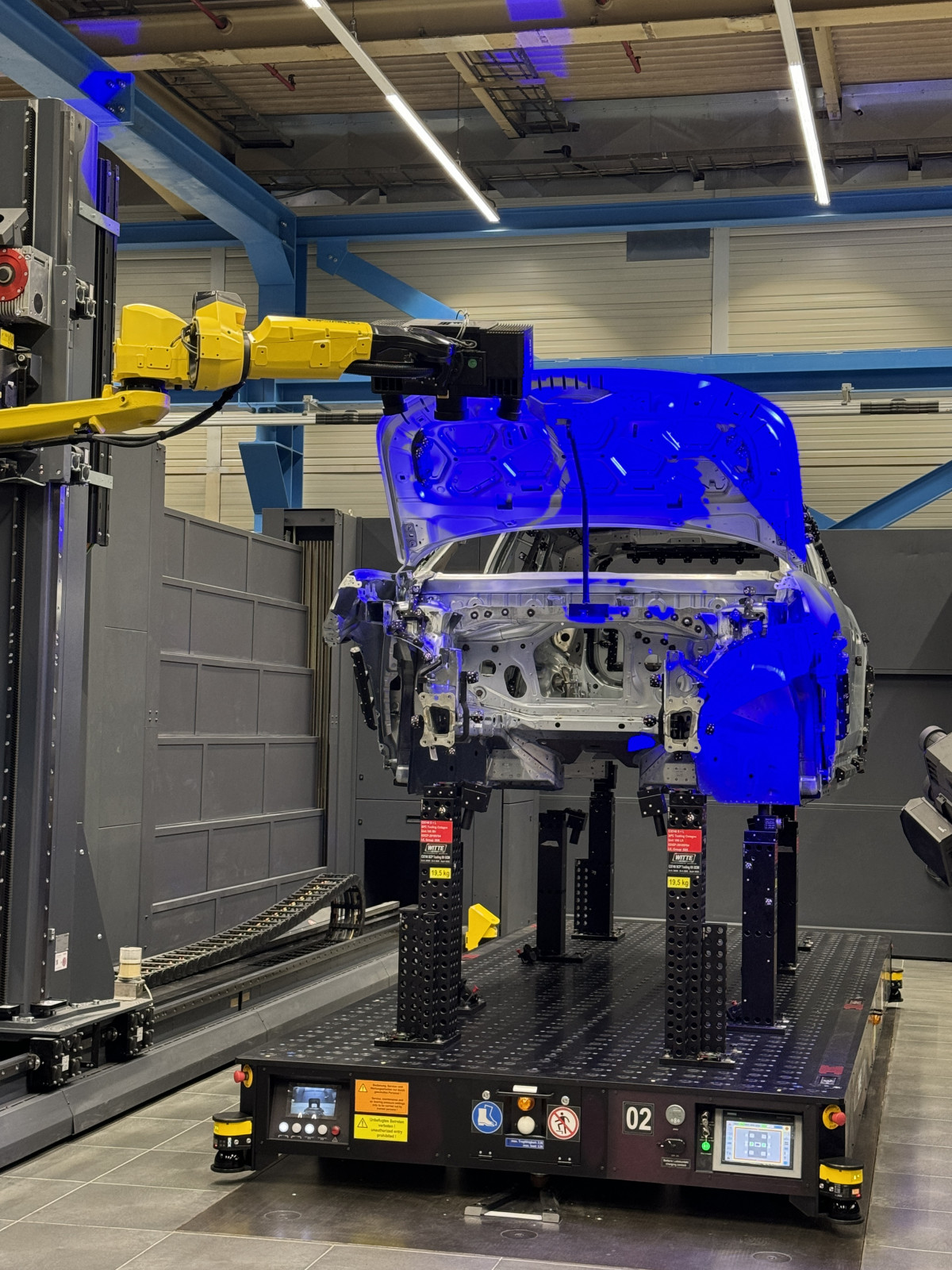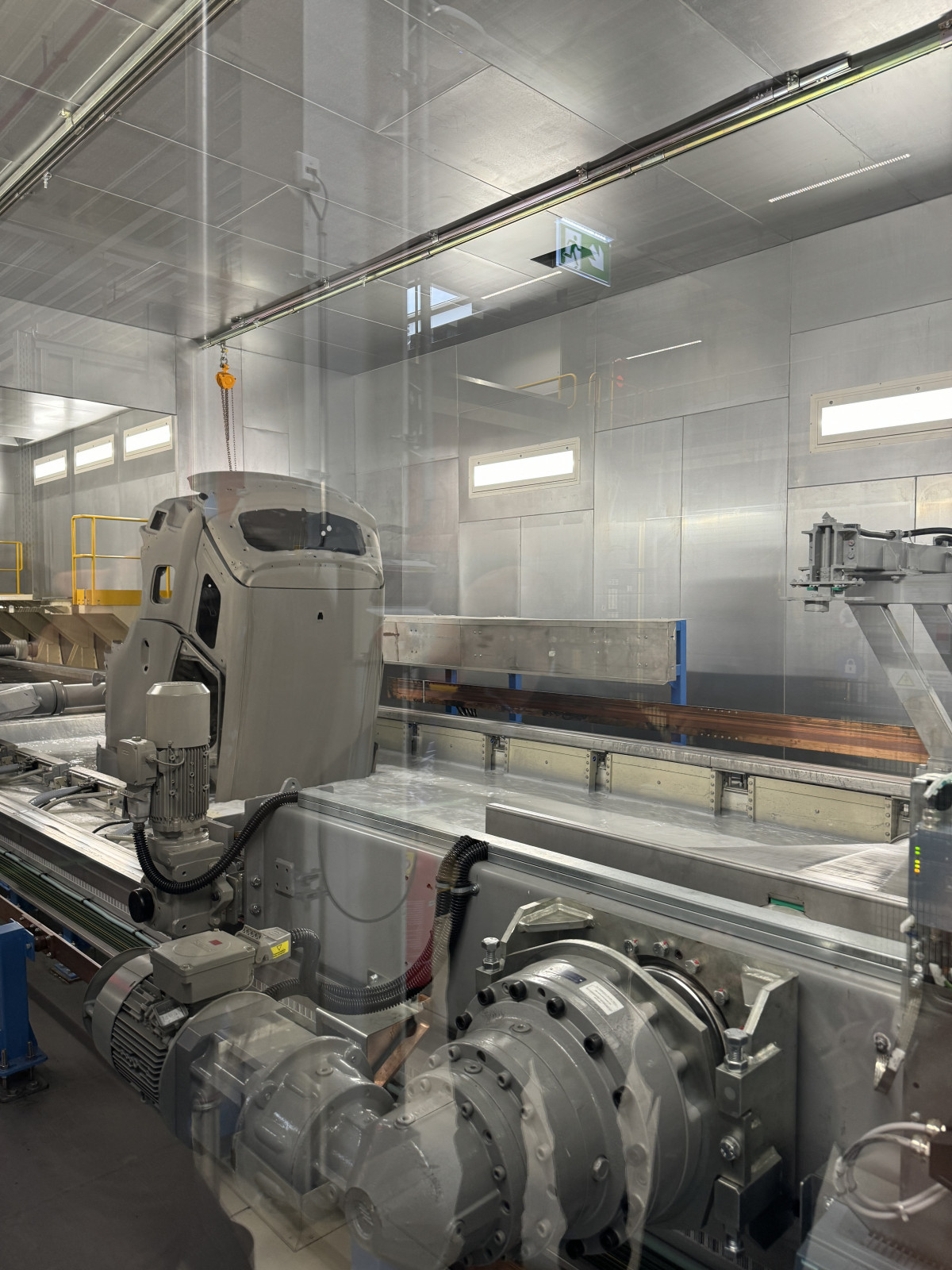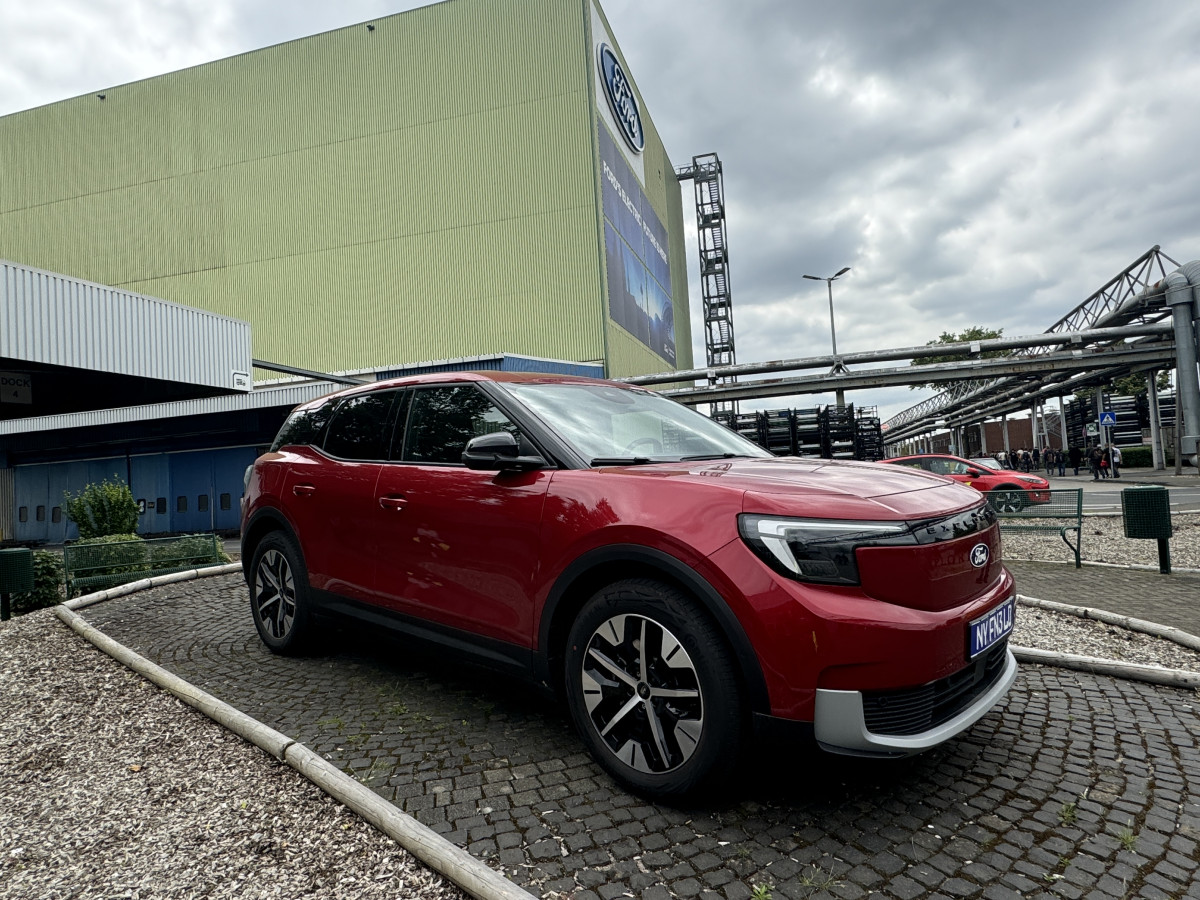The keys to the new Explorer and Ford's Electric Vehicle Centre in Cologne

AutoRevista covered live the production start-up of Ford's first European-built electric passenger car at a state-of-the-art facility. A report from D.B.P.
Ford has started series production of the new all-electric Explorer at its first dedicated electric vehicle (EV) plant in Europe, following a €1.8 billion investment that has transformed the historic plant in Cologne, Germany, into the factory of the future. The plant, which employs around 3,300 people, has the capacity to produce an Explorer every 54 seconds and has produced more than 18 million vehicles over the past 90 years.
"To see the Cologne plant, founded by Ford in 1930, transformed into a state-of-the-art electric vehicle production facility is amazing. The start of series production of electric vehicles, with the new 100 percent electric Explorer, marks the beginning of a new era for Ford in Europe,’ said Kieran Cahill, vice president, Manufacturing, Ford of Europe and International Markets Group. The Cologne Electric Vehicle Centre is equipped with cutting-edge AI as well as hundreds of state-of-the-art robots for the development of a new generation of electric vehicles. The plant's digital twin monitors and supports the production line operators to deliver high quality standards.

The plant has self-learning machines and more than 600 new robots that perform welding, cutting, dust removal, painting and melting tasks. In addition, a new control centre monitors the entire assembly process in real time, down to every part and nut at every workstation. The digital twin of the plant is displayed via a giant touch screen containing all workstations with information on tools, material deliveries, work safety and much more. With small touch screens, employees on the line provide more information about the status of their workstations. ‘By monitoring and controlling every step of the manufacturing process, Ford will achieve unprecedented levels of quality for our customers,’ emphasises René Wolf, General Manager of Ford Werke Manufacturing.
Efficiency and sustainability
The Cologne Electric Vehicle Centre is one of Ford's most efficient vehicle assembly plants worldwide, with significant savings in emissions, water use and energy consumption. Ford is working to implement a path to carbon neutrality for the Cologne Electric Vehicle Centre. With production already underway, greenhouse gas (GHG) emissions data will be monitored and recorded for independent certification according to the latest international standards. Within this strategy, Ford will continuously improve carbon efficiency and reduce GHG emissions towards a residual level.
In addition to initiatives that reduce emissions, water use and energy consumption, all electricity and natural gas required to operate the plant are sourced from 100% certified renewable electricity and biomethane. The energy received from the national grid distribution systems is generated from a variety of sources (both renewable and non-renewable). At Ford, certified renewable electricity means that for all the electricity purchased to run the Cologne Electric Vehicle Centre, an equivalent amount of electricity produced from 100% renewable sources will enter the national grid distribution systems. Ford Motor Company aims for carbon neutrality across its entire European production chain by 2035, including facilities, logistics and direct suppliers.
Leading-edge production
All electricity and natural gas required to run the plant is based on 100% renewable electricity and biomethane. The factory also has an area equipped with a completely new production line, battery assembly and state-of-the-art tooling and automation. The production process starts with several automated conveyors that guide the materials and prefabricated parts to the workstations. For the AI-controlled laser welding of the roof to the body, a special enclosed room has been installed.

In the body shop, robots handle everything from selecting and placing parts to transferring large sheets of metal to the stamping machines. A mobile artificial intelligence vision system scans the vehicle body to compare it with its digital twin. In this way, two robots with cameras and scanners check every micrometre of the vehicle for deviations. Subsequently, the artificial intelligence-based precision measuring system with a photonic crystal fibre sensor analyses all critical bolting points.
Another central element of the new Ford plant is ‘closed-loop production’, a continuous exchange of data at all stages of the process to enable rapid adjustments. The vehicle body passes through a series of baths and rotates 360 degrees to avoid air bubbles. Distilled water from a nearby power plant is filtered and continuously reused. Afterwards, different robots apply a sealant. The new drying process saves 1,000 tonnes of CO2 per year. ‘The new anti-corrosion, sealing and painting processes result in the best finish ever for a Ford vehicle,’ say company officials.

A pair of robots armed with brushes clean the entire bodywork. The paint shop has a downward airflow that ensures more precise painting and less material is used. The Cologne factory's new AI system checks all of the Explorer's electrical connections via cameras, while a laser scanner detects unwanted objects before the battery and vehicle body are joined together.
In the final assembly area, the body and battery axle module proceed along separate lines before being assembled. During the last phase, scanners and experts perform a final quality check of all vehicle components and the surface.
On the balance between the use of robots and employees, Christian Weingärtner, Ford's General Manager of Marketing and Sales, says: ‘We are always looking for a balance. In the end it is really important to be effective and efficient because if you produce in a country like Germany or Spain you have to look for an effective mix to work better. Some jobs are better done by people and some jobs are easier and safer for robots.
New Ford Explorer electric
The electric Ford Explorer is the first vehicle to roll off the production line at Ford's Cologne Electric Vehicle Centre. A second EV, a new sports crossover, will be unveiled shortly, and production in Cologne will begin later this year.

The new all-electric Explorer features standard equipment that includes a battery-electric propulsion system for zero tailpipe emissions while driving, and more than 600 km of range on a single charge. Its futuristic exterior styling is combined with an interior that includes stylish sports seats and a sound bar. Features also include a large SYNC Move mobile touchscreen and a fully connected audio infotainment system tailored to the interior, with wireless app integration and advanced driver assistance technologies.
All of this is complemented by a fast-charging capability from 10% to 80% in just 25 minutes. Charging can be quick and easy, whether on the road or at home. The Explorer is able to help locate the most convenient stops on the road. Charging at home can be programmed to use electricity at off-peak times, as well as to enjoy a fully-charged battery and a warm cabin before setting off in the early hours of the morning.
Ford chose a battery technology that offers greater safety, longer range and a longer charge-discharge cycle. On the recycling of the new generation batteries, Weingärtner says: ‘The raw material for batteries is very expensive, so it is very important to recycle. We can't just abandon batteries from a business or ecological point of view. Right now the volume of batteries is really low because, obviously, the uptake of EVs is not yet as high as expected, but in a couple of years the first batteries will start to be massively recycled, so we have to establish even more efficient procedures".

Renault Group presentó el pasado 2 de julio ante los medios de comunicación su Plant Connect de su planta de Palencia y otras innovaciones en el marco del evento internacional Renault E-Tech Tour. Una información de Irene Díaz.

“Atrevido, elegante y propulsado por un sistema de propulsión 100% eléctrico”, tal y como lo describe la compañía, el modelo de acceso a la gama de la marca, que recientemente se ha presentado en el mercado europeo bajo el nombre Dolphin Surf y que también se vende en China como BYD Seagull, ya goza de una gran popularidad en Brasil.

Xiaomi ha anunciado el inicio de las ventas oficiales de su primer SUV, el Xiaomi YU7, que se posiciona como un SUV de lujo de alto rendimiento que pretende redefinir el lujo a través de un diseño avanzado, tecnología, experiencia de conducción y seguridad, creando un SUV avanzado que desafía lo ordinario. Xiaomi YU7 está disponible en tres versiones: Standard, Pro y Max.

Ford España ha lanzado el SupportBelt, un accesorio diseñado para mejorar la experiencia al volante de las personas que, debido a un cáncer de mama, una reconstrucción, mastectomía o ciertos tratamientos, sienten incomodidad a la hora de usar el cinturón de seguridad.

CRECEMOS ha llevado a cabo un encuentro en el Parlamento Europeo con los principales representantes institucionales y del sector privado para debatir sobre la revisión de los Reglamentos de Emisiones (LDV y HDV), el papel de los combustibles renovables en la descarbonización como una solución presente.
